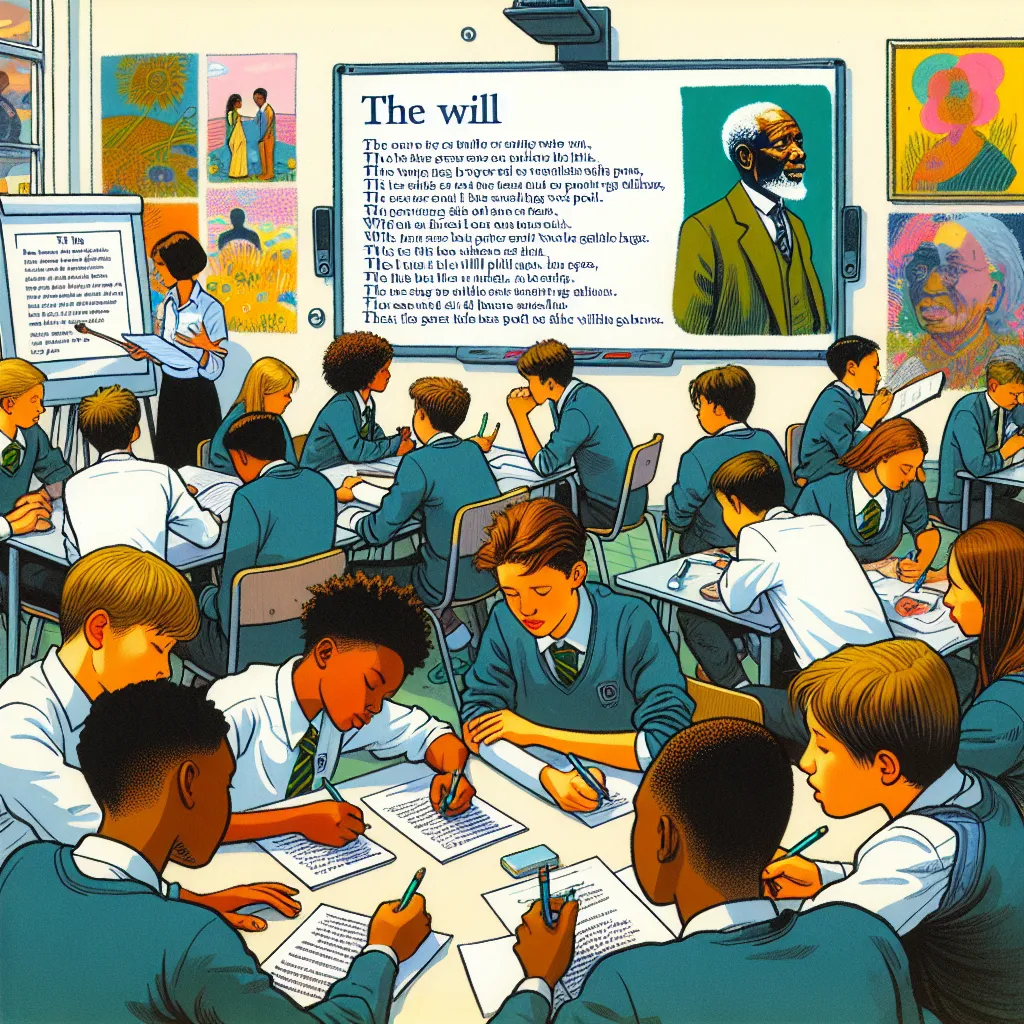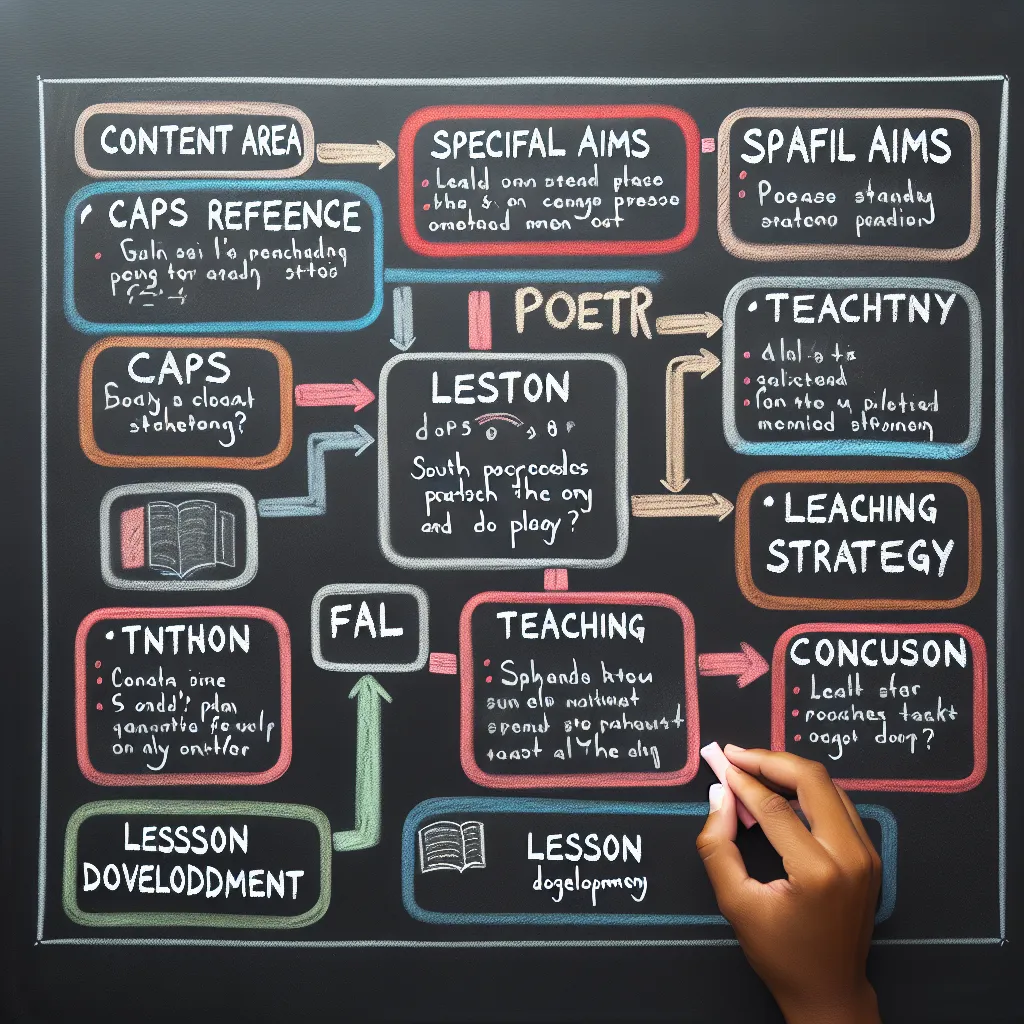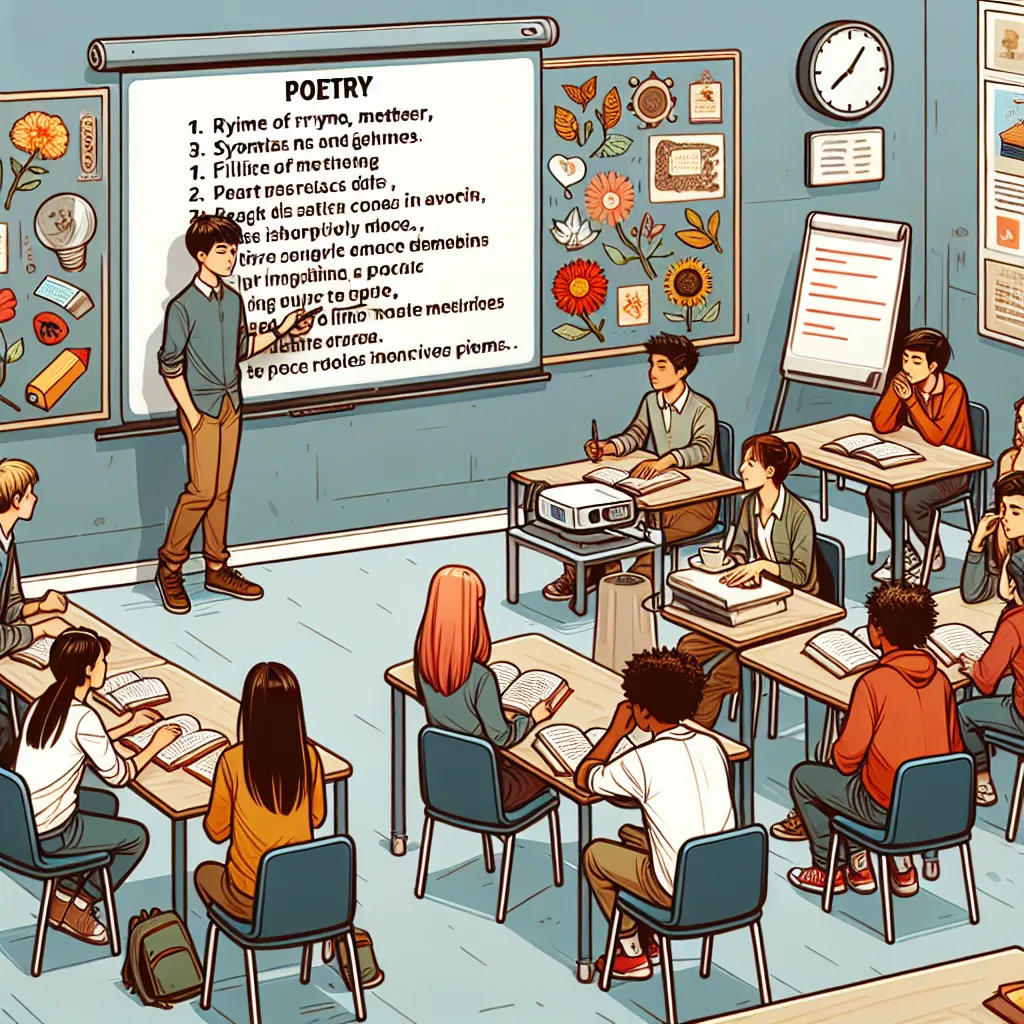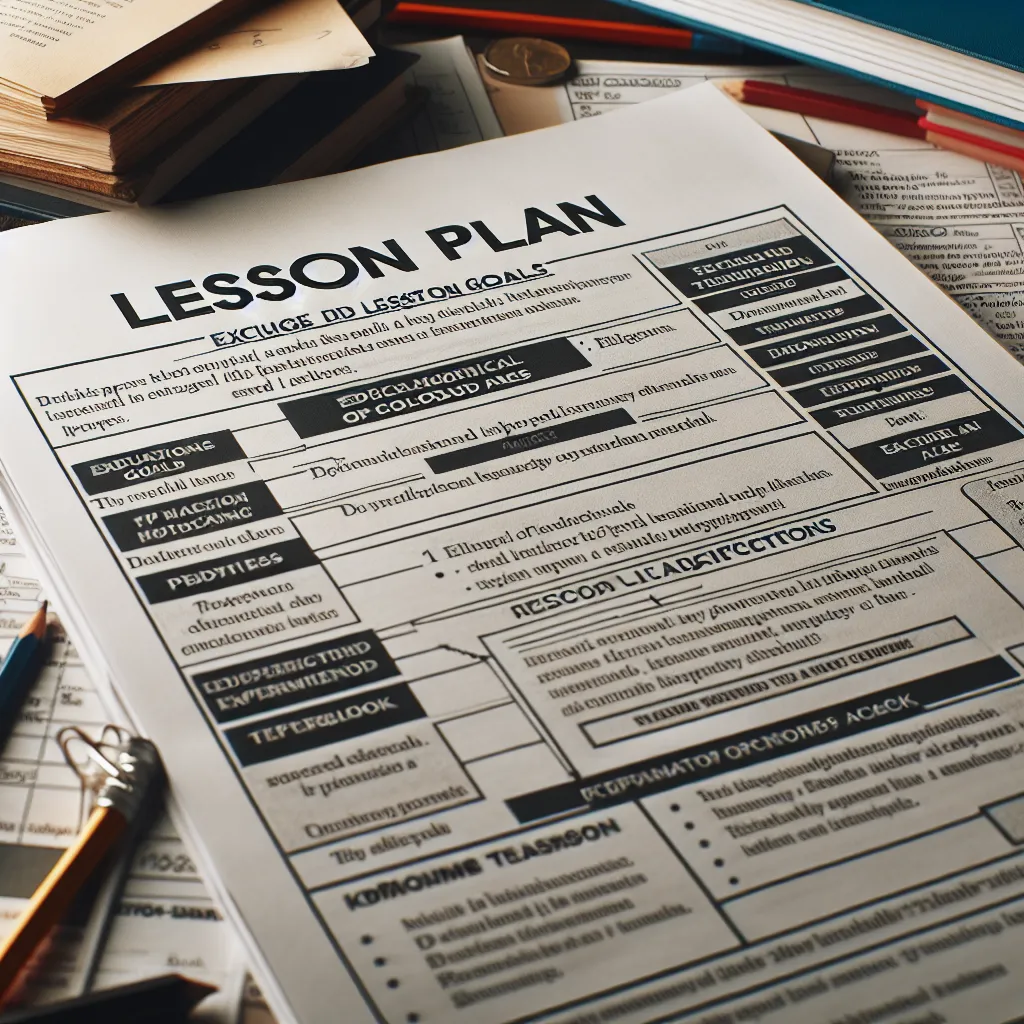Ask AI on The Internet
Question: Write a full South African English FAL grade 9 poetry lesson plan using the poem "The Will" by Sipho Sepamla. The lesson plan should include the content area, caps page number, specific aims, lesson objectives (knowledge, skills and values/attitudes), the approach/teaching strategy, the introduction of the lesson, the development of the lesson and lastly the conclusion of the lesson
# **Grade 9 Poetry Lesson Plan** ## **"The Will" by Sipho Sepamla** ### **Content Area: Poetry** #### **CAPS Page Number** Refer to the latest CAPS document for Grade 9 English First Additional Language. Poetry is typically covered in Term 3, see the specifics in the CAPS document. ### **Specific Aims** 1. Develop skills in reading and understanding poetry. 2. Foster an appreciation for literary texts. 3. Encourage critical thinking and personal responses to texts. 4. Improve vocabulary and language awareness. ### **Lesson Objectives** - **Knowledge:** - Understand the premise and themes of "The Will" by Sipho Sepamla. - Identify poetic devices used in the poem, such as metaphor, simile, and imagery. - **Skills:** - Analyze and interpret the poem’s content and language. - Express individual interpretations and thoughts verbally and in writing. - Develop the ability to answer comprehension and analytical questions based on the poem. - **Values/Attitudes:** - Appreciate the cultural and emotional depth of the poem. - Respect diverse opinions and interpretations of the poem. - Cultivate a love for reading and engaging with poetry. ### **Approach/Teaching Strategy** - Interactive reading session - Group discussion and analysis - Pair and share activities - Written exercises and formative assessment ### **Introduction of the Lesson (10 minutes)** 1. **Greeting and Settling:** Greet the students and allow them to settle down. Ensure they have the poem "The Will" in front of them. 2. **Context Introduction:** Provide a brief background on Sipho Sepamla and his contributions to South African literature. Explain any necessary historical and social context. 3. **Initial Engagement:** Read the poem aloud to the class, or play a recording of the poem being read by a voice actor or the poet himself (if available). This helps to set the tone and mood. ### **Development of the Lesson** #### **1. Reading and Initial Reactions (15 minutes)** - **Individual Reading:** Ask students to read the poem silently to themselves after the initial read-aloud. - **First Impressions:** Take quick verbal feedback from students about their initial thoughts and feelings about the poem. - **Vocabulary Check:** Address any difficult words or phrases and provide explanations or synonyms. #### **2. Group Discussion and Analysis (20 minutes)** - **Divide the Class:** Split students into small groups, assigning each group specific aspects of the poem to discuss (e.g., themes, emotions, poetic devices, structure). - **Guiding Questions:** - What is the central theme or message of "The Will"? - How does the poet express emotions through language and imagery? - What poetic devices can you identify, and what effect do they have? - **Group Presentations:** Each group presents their findings to the class, encouraging other students to ask questions or add comments. #### **3. Pair and Share Activities (15 minutes)** - **Metaphor and Simile Exploration:** In pairs, students find examples of metaphors and similes in the poem and discuss their meanings and effects. - **Emotional Response Writing:** Each student writes a short paragraph about how the poem makes them feel and why. Share these responses with their partners. ### **Conclusion of the Lesson (10 minutes)** 1. **Summarization:** Recap the key points discussed during the lesson, highlighting common themes, significant lines, and effective use of poetic devices. 2. **Individual Reflections:** Ask a few students to share their reflections on what they learned and found most interesting about the poem. 3. **Homework Assignment:** Instruct students to write a brief essay on their personal interpretation of the poem and how it relates to their understanding of the poet's context. 4. **Closing Remarks:** Encourage students to read more poems by Sipho Sepamla or other contemporary South African poets to broaden their literary horizons. **Materials Needed:** - Copies of "The Will" by Sipho Sepamla for each student. - Whiteboard and markers or smartboard. - Recording device (if using a recorded reading). **Assessment:** - Monitoring participation during group discussions and pair activities. - Reviewing the emotional response paragraphs. - Evaluating the homework essays for comprehension and engagement with the poem. **Extension Activities:** - Watch a documentary or interview featuring Sipho Sepamla. - Organize a poetry reading event where students can recite their favorite poems, including those they’ve written themselves. **Note:** Adjust timing and activities based on student comprehension levels and engagement. Always be prepared with extra resources or activities to enrich the lesson if time allows.
Think your answer is better than the AI's? Post it below.
Question Tags
If you want your question answered by an AI, click here.







Post your own comment: